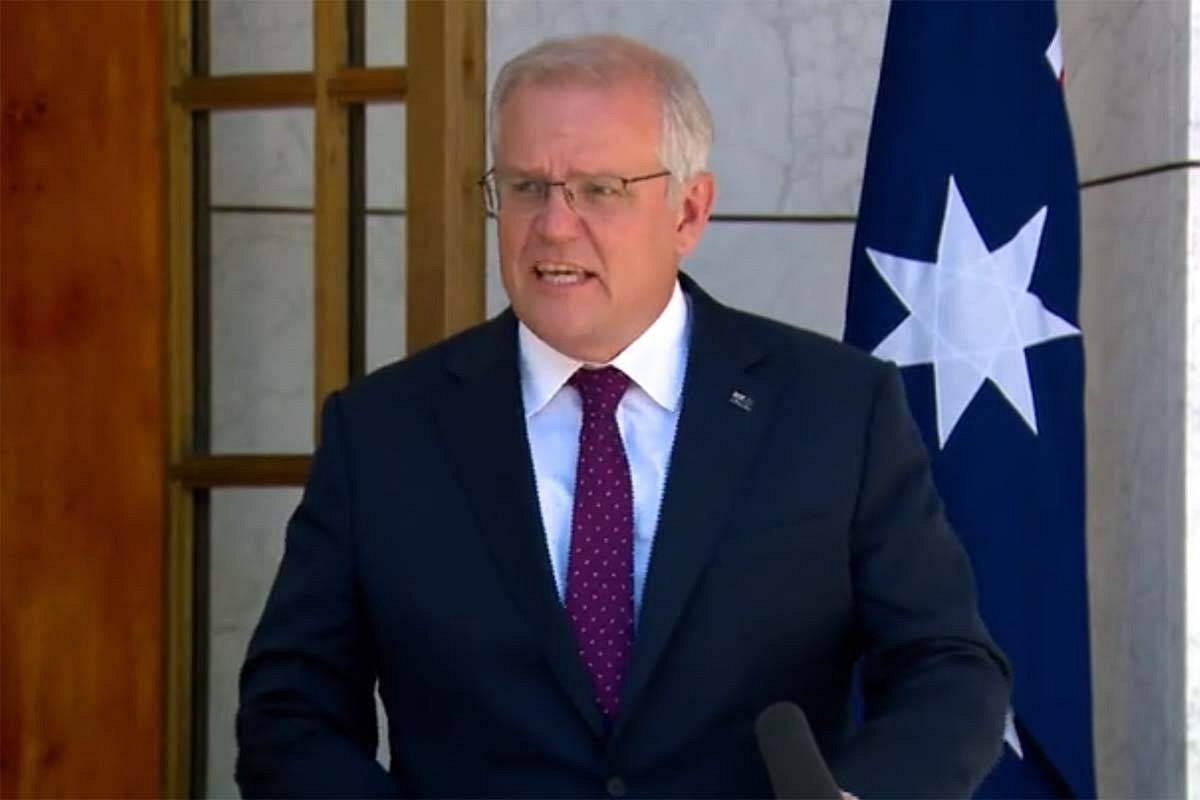News Brief
Australia Redefines 'Close Contact', To Go Slow On PCR Tests After 21000 Record New Daily Cases Puts Enormous Strain On Testing System
- With record 21,000 new daily cases of Covid-19 putting enormous stress on PCR testing scheme, Australia is recalibrating its testing strategy including redefining who a 'close contact' is.
- Australian Prime Minister Scott Morrison said that a “reset” was necessary because it was unfeasible to “have hundreds of thousands of Australians or more taken out of circulation based on rules that were set for the Delta variant”.
- The Australian Media Association (AMA) however expressed serious concern over the cabinet's decision to adopt a new definition of “close contact” in the current phase of the COVID-19 pandemic.

Scott Morrison
With record 21,000 new daily cases of Covid-19 putting enormous stress on PCR testing scheme, Australia is recalibrating its testing strategy including redefining who a 'close contact' is.
Australian Prime Minister Scott Morrison today (Dec 30) said that a “reset” was necessary because it was unfeasible to “have hundreds of thousands of Australians or more taken out of circulation based on rules that were set for the Delta variant”.
The National Cabinet also approved a new definition of a 'close contact' as someone who lives with or has been in a “household-like” situation with a confirmed Covid-19 case for at least four hours.
“If you are anything other than a close contact, and you are not symptomatic, you don’t need to go and get a test,” Morrison said.
Morrison said the change would “ensure that our public health systems work as effectively to keep as many people are safe as possible”.
As per the new guidelines, confirmed Covid-19 cases and close contacts are required to stay at home for seven days, with a rapid antigen test on day six in order to clear the way for them to return to the community.
National Cabinet said that decision was based on the recommendation of Australian Health Protection Principals Committee (AHPPC) advice to reset TTIQ (Test, Trace, Isolate and Quarantine Arrangements) in the context of high case numbers and the Omicron variant, so that Australians can continue to live with COVID-19.
The Australian Media Association (AMA) however expressed serious concern over the cabinet's decision to adopt a new definition of “close contact” in the current phase of the COVID-19 pandemic.
“We will miss so many more cases with this new, more narrow definition of a close contact.
“Anyone catching Omicron in a restaurant or pub for example and who are asymptomatic won’t know they’re infected and could pass the virus on to more vulnerable people.
“The change will help to preserve testing capacity and should limit the number of furloughed health workers, but it will come at the cost of accelerating the outbreak.
“It seems National Cabinet is prepared to bet that a massive Omicron outbreak won’t cause large numbers of hospitalisations. Whilst initial data is encouraging, we expect hospitalisations to rise in coming weeks simply due to the very large number of cases, which will be far larger than the positive tests indicate, due to today’s decision,” Dr Khorshid said.
The AMA said good isolation practices after exposure to Omicron remain critical in efforts to slow the circulation of Omicron in the community.
Australian on Thursday reported 21,343 new Covid cases, a new record for the country, including 12,226 infections in NSW, 5,137 in Victoria and 1,374 in South Australia.
Introducing ElectionsHQ + 50 Ground Reports Project
The 2024 elections might seem easy to guess, but there are some important questions that shouldn't be missed.
Do freebies still sway voters? Do people prioritise infrastructure when voting? How will Punjab vote?
The answers to these questions provide great insights into where we, as a country, are headed in the years to come.
Swarajya is starting a project with an aim to do 50 solid ground stories and a smart commentary service on WhatsApp, a one-of-a-kind. We'd love your support during this election season.
Click below to contribute.
Latest